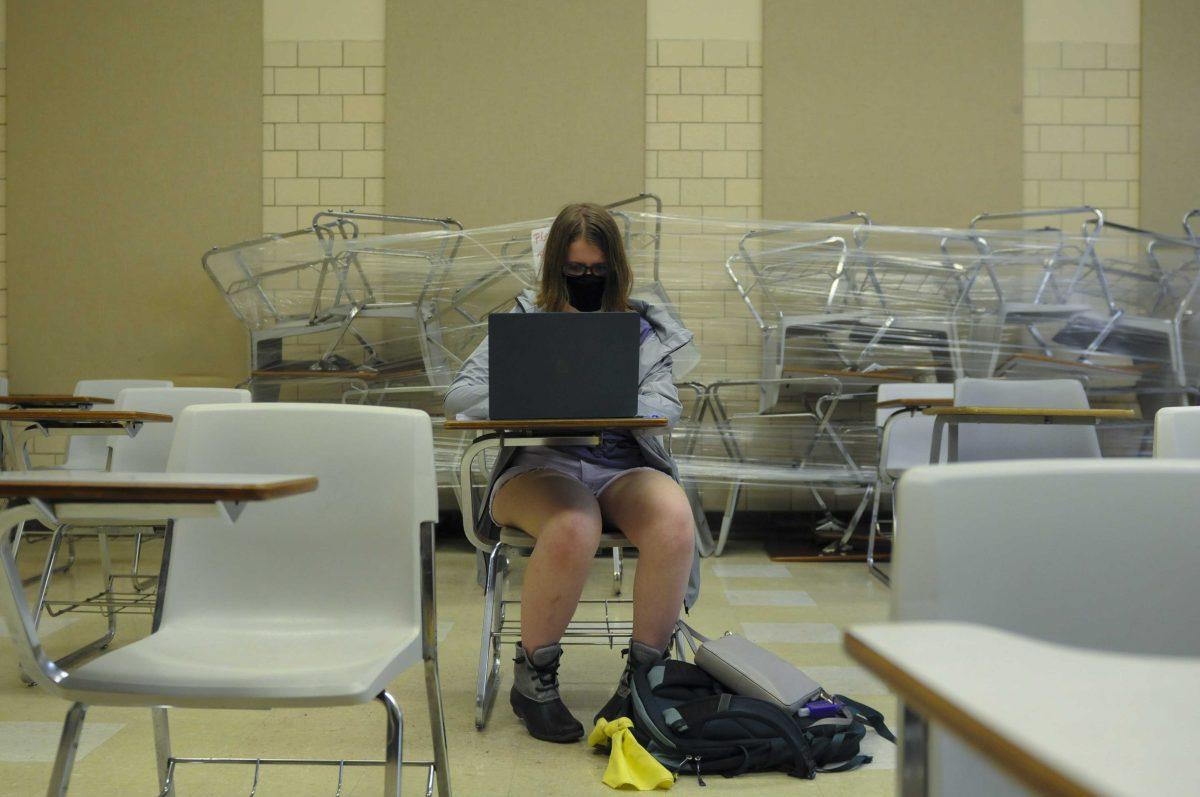Zoom fatigue has taken over college campuses nationwide. With a new semester upon us, it is clear that online classes will remain. I am one of those poor unfortunate souls who have back-to-back online classes twice a week.
According to Psychiatric Times, Zoom fatigue “describes the tiredness, worry, or burnout associated with virtual platforms of communication.”
Zoom fatigue occurs due to the overabundance of work our mind is doing to keep up with the screen. We lose a lot of non-verbal signals and social cues, such as facial expression, joint attention and body posture. These social cues are difficult for our brains to decipher and visualize. Without face-to-face interaction, our mind does not process these signals as fast and uses more energy to do so.
“This creates a feeling of being on stage and is often accompanied by a compulsion to perform, which also requires more energy than a simple interaction,” Diana Concannon, PsyD, psychologist, and dean of the California School of Forensic Studies at Alliant International University told Health magazine.
Here are some ways to fight Zoom fatigue:
1. Take a break & limit video calls
Take a break in between video calls to stretch or get a snack. Zoom fatigue requires us to focus even more when we communicate. Your mind is doing twice the work, so give it and you a well-deserved break. Create a transitional period in between long lectures.
If possible, try to opt out of video calls outside of class and use other forms of communication.
2. Avoid getting digital eye fatigue
Digital eye fatigue covers several symptoms since everyone experiences it in different ways. The most common symptoms include dry eye, headaches and blurry vision. The long term use of computers and digital products, such as cell phones and tablets, causes digital eye fatigue.
To prevent digital eye fatigue, avoid prolonged computer use. Ensure your laptop and phone brightness is adjusted to the same brightness as your surrounding environment. Your computer’s text should be an appropriate and easy size to read.
If you wear contact lenses, try wearing prescribed glasses during Zoom meetings.
3. Practice the 20-20-20 rule
The 20-20-20 rule reminds people to take breaks and prevent eye fatigue. Every 20 minutes, a person should look away from their screen for 20 seconds at something that is 20 feet away.
A great app to implement the 20-20-20 rule is the Time Out app on the macOS store. Time Out creates breaks for its users. It offers a microbreak that lasts 15 seconds and occurs every 15 minutes; there is also a normal break that occurs every 10 minutes at the beginning of each hour. Users can adjust how long each break lasts in settings to fit their needs.
4. Change environments
Change your study location every once in a while. Instead of sitting at your boring desk every day, try to find a new space in your home to watch your lectures. Sit outside or in a different room in your house.
5. Be with nature & disconnect
Go outside and connect with the outdoors after a long day of classes. It is hard to find time to go outside and admire nature’s beauty when our classes are online. Take a walk to get things off your mind and reset. Try to go one day a week without overusing technology. Spend the day outside or relax with the windows open, allowing sunlight into the room.
6. Limit distractions
Give your brain a break by cutting off any distraction. Your brain is already working twice as hard to focus during Zoom calls. Turn off notifications during Zoom classes on both your computer and phone. Place your phone face down and on silent. Use productivity apps, such as Flora or Forest, that rewards you for staying off your phone for a certain amount of time.
7. Schedule no screen time
Whenever you have the chance, allot a certain time out of the day to relax and not on tech.
Reconnect with an old hobby, workout, spend time with friends or family, practice yoga or meditate. Block out time for yourself to reconnect. In these uncertain times, make sure to take care of your body and mind. Prioritize yourself for some time of the day, whether it’s for as little as five minutes or as long as an hour.
Seven Zoom self care reminders for the semester
By Ariel Baise
January 11, 2021
Political communications junior Madeline Jones joins her Zoom class Tuesday, Aug. 25, 2020 during the first day of school in Allen Hall.







